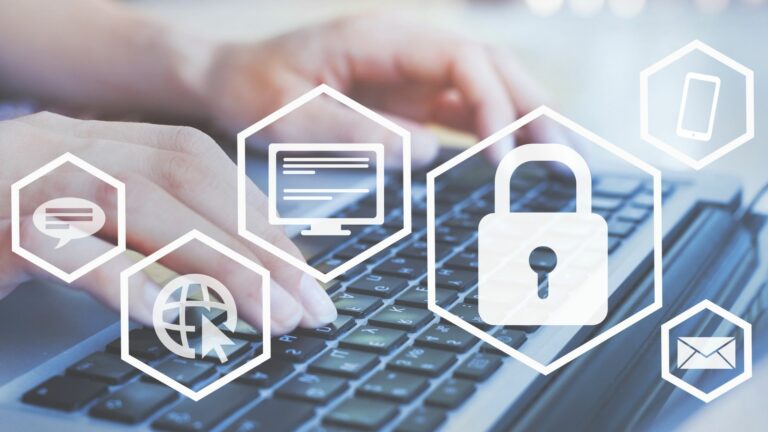Spotting online scams starts with understanding the tactics scammers use. These folks are crafty and know how to trick even the savviest internet users. One classic approach is promising unbelievably high returns with little risk or effort.
If it sounds too good to be true, it probably is. Scammers rely on urgency, pushing you to make quick decisions without thorough research.
Phishing schemes are a major red flag, often masquerading as legitimate businesses. They’ll ask for your personal details, promising rewards or apologizing for supposed account issues. Always verify the sender’s details before handing over sensitive information.
Another popular trick is identity theft, where they pose as someone you know or trust. Trust your instincts and reach out directly to verify if something feels off.
Then there are the investment scams, often found on social media. They promise sky-high returns on forex, cryptocurrency, or stocks but usually end with you losing your money. Scammers love playing the market guru but offering bogus tips or products. Don’t let excitement bait you into a hasty decision.
Learning from others’ experiences helps in recognizing what to avoid. For example, the Nigerian Prince scam might sound outdated, but its core tactic of pulling on heartstrings for financial gain remains prevalent online.
Always keep your skepticism handy and question any deal or opportunity that promises quick profits with minimal effort. A little skepticism goes a long way in protecting your finances and peace of mind online.
Table of Contents
Affiliate Disclaimer: This site contains affiliate links, which means I may earn a commission on purchases made through these links at no extra cost to you.
Conducting a Scam Check

Let's talk about the tools that can help you spot scams before they affect you. Government and consumer protection agencies often provide databases of known scams. Sites like the Better Business Bureau (BBB) or the Federal Trade Commission (FTC) offer free resources to cross-check any business or offer you encounter.
Basic online research is your first line of defense. Search for reviews of the company or individual. If multiple sources highlight negative experiences or scam allegations, it's wise to tread carefully. Authentic reviews usually provide details, whereas fake ones might be vague and unconvincing.
Checking website security is important too. Look for ‘https://' in the website URL, indicating a secure connection. Plus, those little padlock icons in the address bar signal the site is legit and also important is the SSL certificate that tells you the site owners are who they say they are.
There are online tools to verify business legitimacy. Services like WHOIS lookup can reveal who owns the website and how long they've been operational. If a site popped up yesterday, it’s a signal to proceed with caution. Remember, scammers often use new sites to avoid detection.
Protecting Your Personal and Financial Information

It's always important to keep your personal and financial info safe online. Start with strong and unique passwords for all your accounts. Avoid using easy-to-guess passwords like ‘123456′ or ‘password'. Password managers are a great tool for generating and storing complex passwords securely.
Two-factor authentication (2FA) adds an extra layer of security. Whenever it's available, turn it on. It requires a second form of verification, typically through a code sent to your phone, making it harder for unauthorized access even if someone gets hold of your password.
Make sure your devices are secure too. Install antivirus software and keep all your apps and systems updated. These updates patch vulnerabilities that hackers exploit. Be cautious of using public Wi-Fi networks, which are often unsecured and target-rich environments for cybercriminals.
Know what to do if you've already shared sensitive information. Promptly change passwords and contact your bank if you've given out financial details. Most financial institutions have protocols in place for these situations, so don’t hesitate to get in touch with them immediately.
Staying informed about the latest security threats also goes a long way in protecting your information. Sign up for alerts from trustworthy sources to keep yourself updated on new phishing attempts and scams making the rounds.

👉 Get a VPN Built for Entrepreneurs – Protect Your Online Business with Surfshark
Informed Decision-Making
Deciding where to put your money online needs careful research and a healthy dose of skepticism.
- Start by evaluating any claims that promise fast and large profits with minimal effort. Look for the fine print and ask questions about the business model, risk factors, and your own ability to undertake such risks.
- Get input from industry experts whenever you're unsure. Reputable financial advisors or services can provide insights that aren't immediately obvious. There are forums and online communities where experts freely share their thoughts on specific ventures, enabling you to collect multiple opinions before acting.
- Assess credibility by checking to see if the opportunity aligns with safe online money-making options. This could be anything from legitimate freelance work platforms to recognized investing services. Verify the opportunity's authenticity by checking if it's endorsed by well-known industry bodies or has a history of stability and good reviews.
- Align your financial decisions with your personal goals. Consider how much risk you're willing to take and whether the opportunity fits within your investment strategy or earning plan. Don't be swayed by flashy presentations or extravagant promises. Your financial well-being requires planning and due diligence.
With a careful approach, you can avoid spontaneously jumping into decisions that can jeopardize your financial security.
👉 Want to explore a trusted and scam-free way to make money online? Check out my honest review of Wealthy Affiliate and why it’s a safe place for beginners to start.
Steps to Take If You’ve Been Scammed
Facing the reality that you've been scammed is tough, but acting swiftly can make all the difference. You need to understand your rights. Most regions have consumer protection laws you can leverage, so familiarizing yourself with these is your first step.
Once you realize you’ve fallen victim, report the scam to the relevant authorities. Organizations like the Federal Trade Commission (FTC) in the U.S. or Action Fraud in the U.K. are there to help. Additionally, notify the platform where the scam occurred, as they often have mechanisms for dealing with fraud.
If you've lost money or given away sensitive financial details, contact your bank or credit card provider right away. They might be able to stop transactions or recover funds. Many banks also offer fraud protection services to guard against future issues.
Identity theft can be one of the gravest threats following a scam. Keep an eye on your credit report for suspicious activity. Services are available to help monitor and manage your credit status, offering another layer of security.
Besides financial safeguards, don't forget about emotional support. Many people feel guilt or shame after being scammed, but these experiences are more common than you might think. Reach out to support groups or professional counselors who specialize in dealing with the aftermath of scams. Taking steps to reclaim your emotional well-being is just as important as securing your financial situation.
Conclusion
Online money-making opportunities can be empowering, but they should never come at the cost of your financial or personal security. By staying informed, applying due diligence, and trusting your instincts, you can confidently pursue legitimate ways to earn income online while sidestepping the traps set by scammers.
Remember, real success doesn’t come overnight or from a mystery message in your inbox. It comes from consistent effort, smart decisions, and surrounding yourself with trustworthy platforms and communities.
Stay cautious, stay curious, and always prioritize your safety over shortcuts.
If you're looking for a trustworthy starting point in your online income journey, I recommend checking out my free guide on affiliate marketing for beginners. It's a step-by-step breakdown of how to build a business the right way.

Elizabeth teaches people how to make money online through affiliate marketing. Her tips and strategies help readers earn a Full-Time Income from home. She shares easy steps for success on her blog. Follow her to start your journey!








